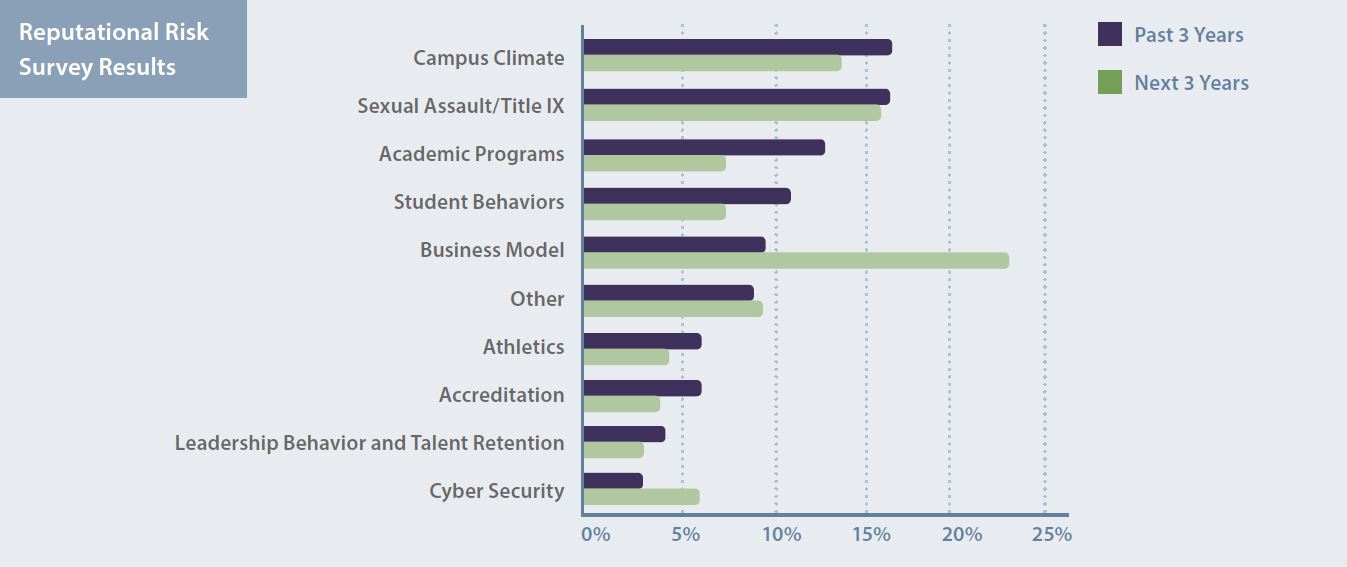You have /5 articles left.
Sign up for a free account or log in.
A recent survey of college and university leaders shows they believe the top reputational risks to their institutions over the last three years fall under the categories of campus climate, sexual assault, academic programs and student behavior.
But top reputational risks going forward start with higher education’s business model -- an area including enrollment trends, fiscal management, staffing levels and tuition management. Major areas of reputational risk in the next three years also include sexual assault and campus climate issues.
Those findings are included in research recently released by United Educators, a liability insurance and risk management services firm for schools, colleges and universities. The UE Reputational Risk Survey, administered by the Association of Governing Boards of Colleges and Universities, was sent to board of trustees chairs, presidents, chief financial officers and other senior administrators at 145 institutions in 2017.
It also found that colleges and universities are increasingly utilizing enterprise risk management strategies as a way to prepare for risks and opportunities -- and to respond to them. In 2013, just a third of respondents in a predecessor survey said they had a formal process for risk assessment. In the new survey, 70 percent said they had a formal enterprise risk management process and structure.
Still, only 26 percent of survey respondents think their institutions’ responses to reputational risk are consistently proactive, and 54 percent said they don’t have the ability to withstand a major reputational risk event.









